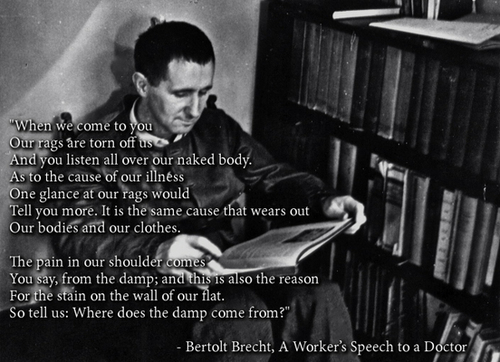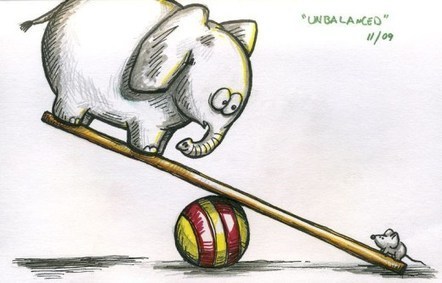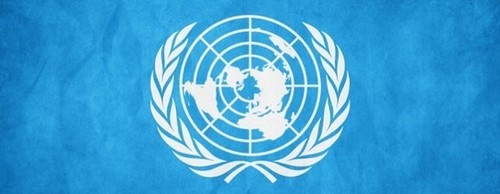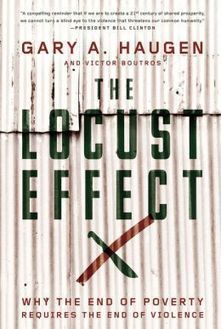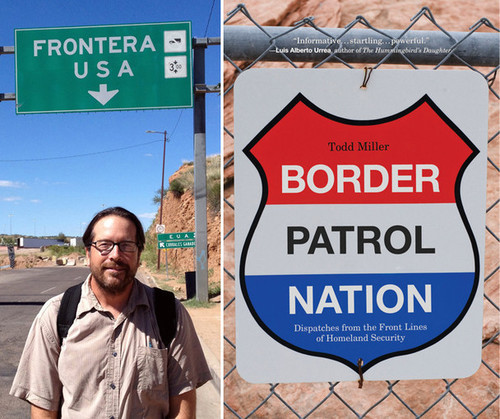The shooting of an unarmed homeless man by police prompts protests in Albuquerque, New Mexico.
See on www.cnn.com
Month: March 2014
Behavioral violence and systemic violence
“…
Systemic violence
Systemic violence is the harm caused against individuals or groups of people through social structures. Systemic violence and behavioral violence aren’t juxtaposed, the latter is dependent on the former; we can’t properly conceive of behavioral violence without understanding its systemic causes. We may think of the US Army in the Iraq War for an example. It’s obvious who’s pulling the trigger against the Iraqi population are American soldiers, but we don’t blame just the individual soldier, we also blame the structure of the military itself, a product of the need for repressive organs in class society.
Systemic violence puts individuals through social arrangements in positions of discomfort. They cause injury and hence are are violent; they are embedded in the structure of society and a product of its normal functioning and hence systemic. Racial segregation, only in part caused by behavioral constraints and mostly a product of systemic causes accumulated throughout the settler-colonial history of the United States, claims 176,000 lives a year, tens of times more than the deaths caused by firearm-related homicide.
…”
See on anti-imperialism.com
The Model Minority is a Lever of White Supremacy
“According to the myth we’re also less prone to criminality, more family-oriented, harder working, less egocentric, more cooperative, and less mouthy, making us ideal employees. That is, of course, as long as we don’t aspire to management. Lei Lai, an assistant professor at Tulane University, found that Asian Americans have the lowest probability of promotion to managerial positions among all non-whites, and in part for being stereotyped as having some of the same characteristics – being quiet and unassertive, among others – that lead many to call us model minorities, begging the question, is the model for the racial minorities America wants just submissive, put up or shut up robots?
…
So let’s cut through some of the fairy dust here. Asian Americans do have higher median family incomes than all others by race. However, that’s because Asian American families tend to include more incomes. Our per capita incomes still lag behind that of whites. Asian Americans also tend to be clustered in coastal cities where median incomes are higher, skewing that statistic even further. Even the supposed higher than average educational attainment level of Asians doesn’t stand up to close scrutiny. When it comes to the percentage of adults without high school diplomas, the Hmong, Chinese, Laotians, Vietnamese, and Cambodians in the U.S. all exceed the national average of 19.6%, with the Hmong on the extreme end of disadvantage at 59.6%
…
The reality is that very little unites Asians other than the fact that non-Asians have decided we are a race, and an often hated one, and have treated us as such, whether we like it or not.
…
The myth provides a smokescreen for one of the most fundamental contradictions of U.S. democracy – our ideal of liberty and equal rights, and our history of slavery and enduring legacy of white supremacy – and allows our policy makers to avoid the systemic reforms that are necessary to address that contradiction.”
Loving racial justice brings us to uncover the propaganda (the comparing and judging of some races against other races) that feeds racism.
See on www.racefiles.com
Tavis Smiley – Week Twelve 2014
 Clay Risen – “The Bill of the Century” This year marks the 50th anniversary of the Civil Rights Act of 1964. The groundbreaking bill gave the federal government greater power to strike down segregation, enforce fair hiring practices, and address bias in law enforcement and the courts. While its passage has been credited to the leadership of President Lyndon Johnson and Dr. Martin Luther King, Jr., the battle for the Civil Rights Act was much bigger than those two men. Clay Risen, a staff editor for the op-ed section of “The New York Times”, explores the dynamics of the bill’s passage in his new book, “The Bill of the Century: The Epic Battle for the Civil Rights…
Clay Risen – “The Bill of the Century” This year marks the 50th anniversary of the Civil Rights Act of 1964. The groundbreaking bill gave the federal government greater power to strike down segregation, enforce fair hiring practices, and address bias in law enforcement and the courts. While its passage has been credited to the leadership of President Lyndon Johnson and Dr. Martin Luther King, Jr., the battle for the Civil Rights Act was much bigger than those two men. Clay Risen, a staff editor for the op-ed section of “The New York Times”, explores the dynamics of the bill’s passage in his new book, “The Bill of the Century: The Epic Battle for the Civil Rights…
Josh Ruxin – “A Thousand Hills to Heaven” It’s been 20 years since Rwanda was the scene of gruesome genocidal violence. As many as a million Tutsis and moderate Hutus were literally hacked to pieces by roving death squads during the spring of 1994. Perhaps there’s no better symbol of the nation’s recovery than a village cluster called Mayange and a restaurant called Heaven. Columbia University Professor Josh Ruxin has had a firsthand view of Rwanda’s recovery as director of Health Builders, which helps operate rural health centers. He shares his experiences in a new memoir, “A Thousand Hills to Heaven: Love, Hope, and a Restaurant in Rwanda”….
Scott Kurashige – Diversity Gap at Public Universities A fraternity party last fall at the University of Michigan described as “World Star Hip Hop Presents: Hood Ratchet Thursday” promised twerking, rappers, gangsters, thugs, and basketball players. African American students were incensed. The incident brought to light an underlying issue that has plagued the university for years. In 1996, Michigan voters passed a ballot initiative that banned race-based admission at state schools. Since then, minority enrollment at the University of Michigan has steadily declined. Scott Kurashige, Michigan professor of American culture, history, and Afro-American and African studies, argues in a recent commentary that, in their lack of diversity, schools like Michigan are failing to uphold their mission as public…
Listen on Stitcher
Listen on Soundcloud
Listen on iTunes
Listen on PRI
U.N. Human Rights Committee Scrutinizes Border Patrol Use of Force
“U.S. Southern Border Region – The Southern Border Communities Coalition (SBCC) applauds the U.N. Human Rights Committee’s demand for improved reporting and effective investigations of excessive use-of-force cases by U.S. Customs and Border Protection at the U.S.-Mexico border as part of a review of the United States human rights obligations under the International Covenant of Civil and Political Rights (ICCPR).”
See on soboco.org
San Diego Border Community Rallies to Support Jose Gutierrez
See on soboco.org
The Locust Effect: Why the End of Poverty Requires the End of Violence
“While the world has made encouraging strides in the fight against global poverty, there is a hidden crisis silently undermining our best efforts to help the poor. It is a plague of everyday violence.”
See on www.barnesandnoble.com
Immigration enforcement gone rogue in ‘Border Patrol Nation’
In his scathing and deeply reported examination of the U.S. Border Patrol, Todd Miller argues that the agency has gone rogue since the Sept. 11 terrorist attacks, trampling on the dignity and rights of the undocumented with military-style tactics.
See on www.latimes.com
UNC Academic Scandal: Whistleblower, Former Athlete Speak Out
ESPN Video: North Carolina whistleblower Mary Willingham and former football player Deunta Williams discuss the fake classes that student-athletes were allegedly encouraged to take in order to maintain eligibility to play.
See on espn.go.com
Bipartisan Duo Hopes House Can At Least Agree To Stop Border Patrol Abuses
“Comprehensive immigration reform efforts haven’t been successful in the House, but two members are hoping they can address at least one key piece of the issue: preventing abuse along the border that leads to invasive screenings, seizures of personal belongings, serious injuries and even deaths.”
See on www.huffingtonpost.com



